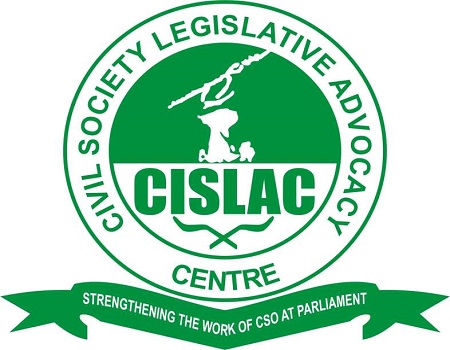The Civil Society Legislative Advocacy Centre (CISLAC) has urged the media in Nigeria to amplify the need for the government to take active measures against the prevalence of dirty money in the nation’s political system.
The centre said the call was imperative as the absence of such measures allowed politicians to continue to infringe on political integrity and accountability, thereby encouraging the icases of vote buying and selling in the country’s political system.
The Executive Director, CISLAC, Auwal Ibrahim Rafsanjani, made the call in Port Harcourt, Rivers State during a workshop for journalists on ‘Political integrity and political party accountability reporting.’
The workshop, which was held under the Strengthening Accountability Networks Among Civil Society (SANCUS) project, saw journalists being enlightened on topics like ‘The need for political integrity and transparent political party financing; techniques in reporting and how to navigate challenges faced by journalists and how journalists can report budget padding and misuse of constituency project.
He charged the media not to abandon its role as the watchdog of the society, saying it was important for the media to remain in the vanguard of exposing politicians infringing on the political integrity of the country.
Rafsanjani warned that failure to make the political process to be free of dirty money financiers would continue to prevent the nation from seeing any positive political development, promising that CISLAC would continue to work with the civil society organisations and the media to ensure there is proper accountability in the system.
He identified corruption in the political system as the major reason the security of Nigeria had not improved despite the huge annual financial allocation to the sector.
He urged all stakeholders to work in synergy to dismantle the process of corruption in the system.
In his presentation on the ‘Need for Political Integrity and Transparent Political Party Financing’, Vaclav Prusa, CISLAC consultant, who made his presentation via zoom, charged CSOs to monitor compliance to political integrity, campaign/political spending and interrogate money in politics.
He added that the CSOs should press and extract anti-corruption pledges from political parties and politicians, especially during election periods as well as educate the public about political integrity and how to demand it from their representatives at all levels.
ALSO READ FROM NIGERIAN TRIBUNE
- Bandits Storm Kaduna Airport, Stop Aircraft From Taking Off
- Lagos Socialite Who Distributed Petrol As Souvenir Sentenced To Two Years Imprisonment, Gets Fine Option
“Absolutely, When we came with the Buhari government in 2015 I became the minister. We were committed to a roadmap to establish a National Carrier, to concession the airports, to set up a leasing company, to establish cargo facilities and we have been doing that.”
On why the Buhari government wanted a national carrier, the minister responded: “Nigeria is situated at the centre of Africa, equidistant from all locations in Africa. 30.4 million square kilometres miles, 1.5 billion people, very green land. If Central and Eastern Africa is the belt of the continent, then Nigeria is the buckle. 200 million people and rising middle class, propensity to fly is high. Nigeria is a candidate for National Carrier.”
Sirika who insisted that the coming national carrier will be private sector driven added; “Private. Yes. 5 per cent government and no government stepping right in that company, no government control, no membership of government on board. Totally private and committed.
“Whatever we say we will do as a government since 2015, it has happened. that is why Tim Clark of Emirates, Qatar Airways and all of them are looking to go into Nigeria in multiple frequencies and multiple landing points because Nigeria is the right place for the airline business.
How Workplace Sexual Harassment Forces Many Out Of Their Dream Jobs
FG expresses commitment towards private driven aviation sector






